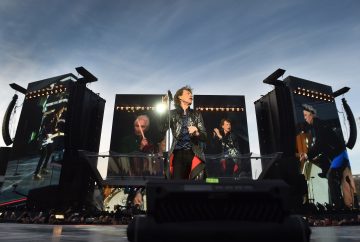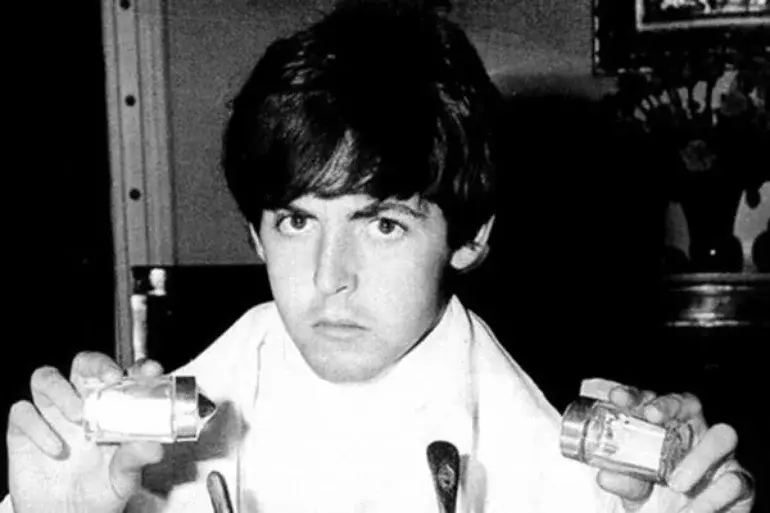
John Moore looks at a host of artists who’ve been asked a very simple, but very revealing question: what song do they wish they’d written?
While picking a song to cover can be as much about securing clout and attracting attention as it is an insight into the mind of a performer, admitting to wishing you’d written a song is akin to exposing the cogs that whirr as part of a creative process. It’s an admission that, if honest, short circuits any wish an artist may have to obfuscate their thought process. It says much about their aspirations and self-image at the same time.
Last week, interviewed in The Guardian, Stephen Marley (multi-Grammy winning son of Bob) admitted he wishes he’d written on of his father’s signature tunes, Redemption Song; it seemed to say something about living in the shadow of fame and adulation. Because of the loaded nature of the question, it pops up regularly in The Guardian’s Honest Playlist feature, and over the years has been used regularly by Rolling Stone in a series called Five Songs I Wish I Wrote and by NME in its Soundtrack of My Life feature to gain interest into the thought process of artists. So I thought it would be interesting to survey some of the responses, and the manner in which they’re given.
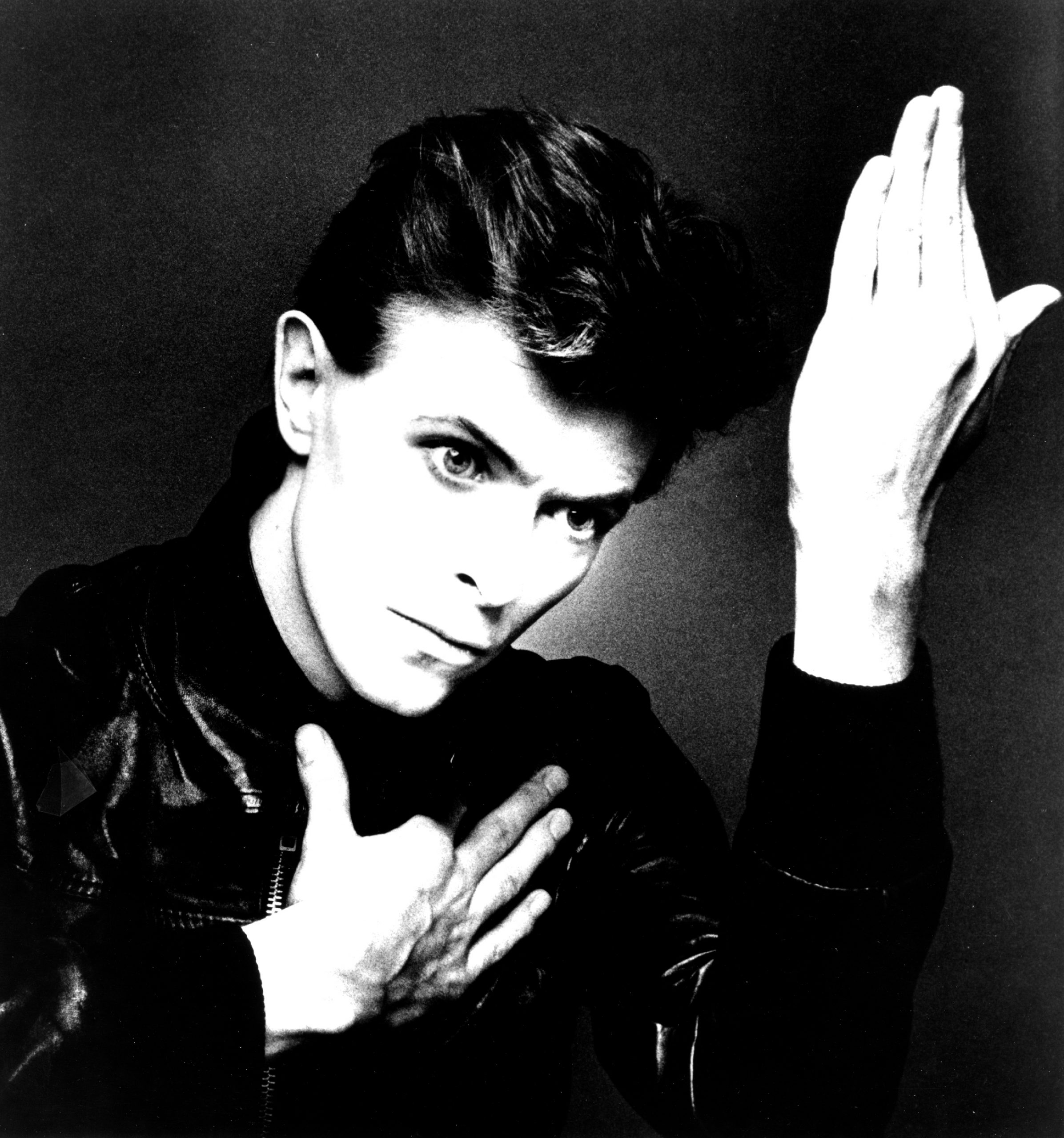
David Bowie’s ‘Heroes’ track is a much-lauded, and enviable, recording
The Love of songs
With his trademark sunny disposition, in 2004 The Cure’s Robert Smith joked with Rolling Stone that he wished he’d written ‘Happy Birthday To You’, “so that people all around the world every second of the day were singing my song,” and – presumably – because, at least at the time as it only became public domain after a high-profile court case in 2017. His second pick was the Hunky Dory Bowie cut, ‘Life on Mars’.
Bright Eyes’ Conor Oberst told US National Public Radio that The Cure’s ‘Lovesong’ was – hey – the love song he wished he’d written when it polled a host of musicians on the subject. Also on the list of artists asked was Phoebe Bridgers, who chose one of Oberst’s own songs – Bright Eyes’ ‘First Day of My Life’ – as her choice.
Musical magpies
The Sex Pistol Glenn Matlock also picked a Bowie track when NME put the question to him, this time the Berlin-era, Fripp/Eno/Visconti masterclass, ‘Heroes’.
“It’s just majestic,” he said in 2021. It’s got a lot of hope in the lyrics and the playing on it is fantastic. It’s kind of that medium-paced song I try to delight in.”

Noel Gallagher wishes he’d written the Sex Pistols LP Never Mind The Bollocks
Somewhat presciently, a decade earlier that purveyor of many medium-paced songs, Noel Gallagher told The S*n that if he could claim one LP as his own, it would be The Sex Pistols’ Never Mind The Bollocks.
Having said that, he’s more recently been quoted as saying he wishes he’d written Mumford & Sons’ ‘The Cave’, so… who knows where his tastes lie now? For his part, brother Liam was far more on-brand when he joked on Twitter that he was one of “many people” who wished they’d written ‘Yesterday’.
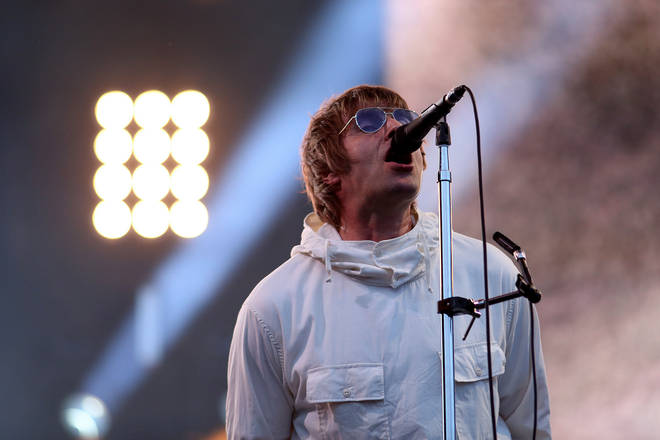
Noel’s brother Liam wishes he’d written Yesterday by The Beatles
In a completely unrelated thought, it’s always interesting to look at the influences of characters that have forged careers out of being musical magpies, collecting shiny nuggets in order to line their own nests.
Producer Mark Ronson helped make his name with the covers LP Version around 15 years ago, roping in The Dap-Kings – which he had liberally used to flavour Amy Winehouses’ Back to Black – to lend his star-making effort a similarly retro edge. It’s little surprise then, that he holds The Zutons’ ‘Valerie’ as the song that he wishes he’d penned himself.
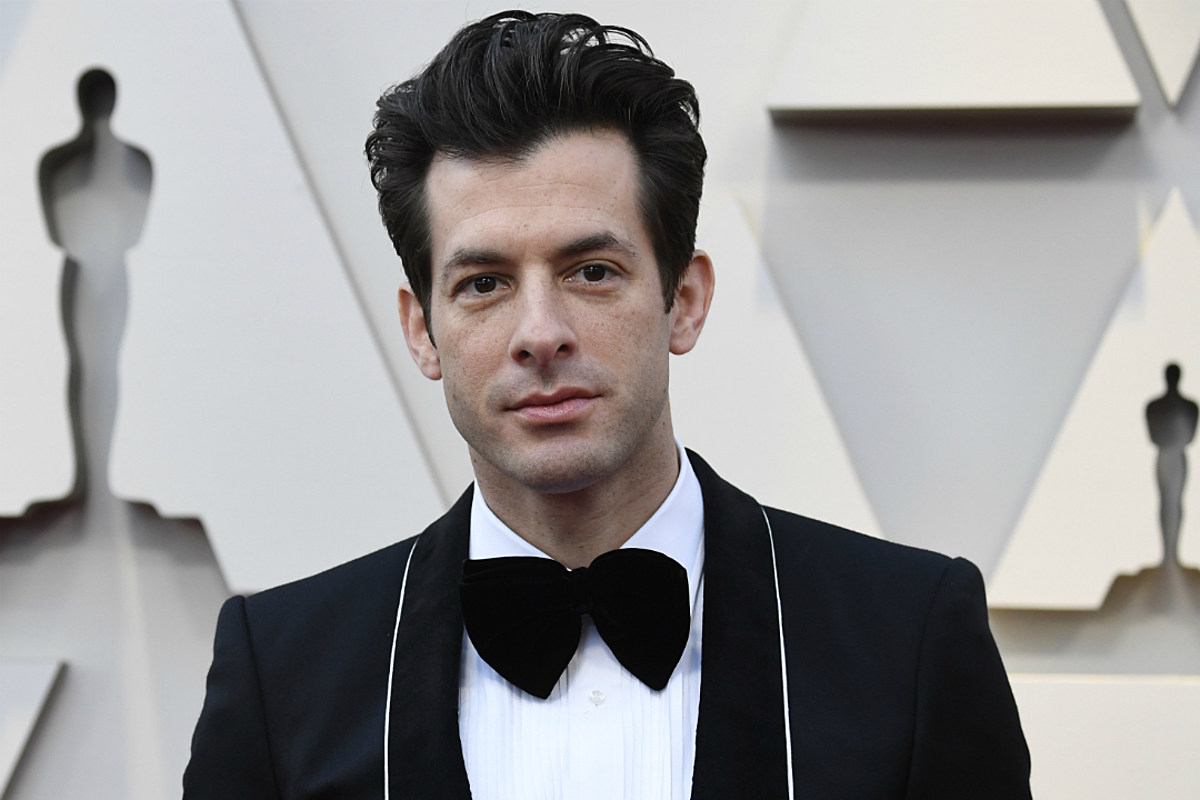
Mark Ronson almost tricks himself into believing he wrote ‘Valerie’ by The Zutons, later covered by Amy Winehouse and Ronson
“I can delude myself that I did write it,” he told NME, referencing the most famous version of the tune, which he arranged and produced with Winehouse for Version. “But I didn’t. [Zutons front-man] Dave McCabe did… when you dissect the song “you realise it’s a real classic; the structure, the two chords, but it was Amy that first heard that it was a soul song.”
Another infamous collector of influences, Primal Scream’s Bobby Gillespie, namechecks the oft-covered soul slow-burner, ‘The Dark End of the Street’ (no, not the Van Morrison one), by Dan Penn and Chips Moman as his paragon.
Citing its thematic touchstone of “Christian shame and guilt,” he sees it as having a dynamic which encapsulates “what I love about country music and American soul,” and one can see how its expression of a “real need to transgress but also an acknowledgement that a sin can be destructive to somebody’s life” influenced his own oeuvre.
In a similar soulful vein, but from a totally different source, rapper/actor Ice-T picked out the Delfonics ‘Hey Love’ as his choice; describing it as “cool, player music, love music.” Which, to be fair, is not wrong. Hinting a little at the motivation behind the choice, he also volunteered that “I wish I could sing like the Delfonics, but I can’t… They’re just three brothers who could harmonise and sing.” No lie detected.
DJ Carl Cox picked out another soul classic, Stevie Wonder’s ‘Another Star’ – from his 1976 classic Songs in the Key of Life – as his choice, calling it “his timeless gem” that “still sounds big and uplifting,” while Adam Horvitz (Beastie Boys’ Ad Rock) told Rolling Stone that Keith Murray’s ‘The Most Beautifullest Thing In This World’, would be his choice – or maybe it would ‘Beat Bop’ by Rammellzee or ‘Where Eagles Dare’ by The Misfits. Three choices that cover pretty much all the bases of his group’s music.
Weird picks
Delving into this question across a range of publications can throw up anomalies; for example, who would’ve thought that The Pixies’ ‘Where is my Mind’ would have been chosen by both composer Danny Elfman and former-soldier and man-you-never-want-to-cross-on-Twitter, James Blunt as the tune they wished they had penned? Not me, I’ll tell you that.
Elfman goes as far as saying he believes the song “just feels like me,” which considering he’s a long-term collaborator with Tim Burton, is somewhat plausible. Blunt, in contrast, opined that the band are “the rock stars I always wanted to be,” and that the band’s reaction to his live cover of the song (see below) – which appears on his greatest hits LP, no less – was “not overly positive.”
For his part The Pixies’ Frank Black (or Francis Black, or Black Francis, if you prefer) named five songs he wishes he’d written as part of the promotion for the band’s second post-Kim Deal LP, Head Carrier in 2016. First among his choices was Neil Young’s ‘Hey Hey, My My (Into the Black)’, which he described as “iconic from the first moment.”
Lyrically, the song features a sentiment (“its better to burn out, than to fade away”) that was infamously riffed on by Kurt Cobain in his final missive, somewhat overshadowing that the track – from the LP Rust Never Sleeps – is one of the finest moments of a long collaborative relationship with the band Crazy Horse. Black’s spot on when he says it sounds “like he’s standing on a mountain peak delivering a sermon that’s 100 years old.”

Pixies frontman Frank Black (left) wishes he’d written (quite unsurprisingly) a Neil Young record
Also on Francis’ list sits The Beatles’ ‘Savoy Truffle’ – a weird little tune that’s allegedly George Harrison’s ode to Eric Clapton’s fondness for chocolate – and Jethro Tull’s chaotic folk prog classic, ‘Aqualung’, the Damned’s ‘Neat Neat Neat’ and The Saint’s ‘I’m Stranded’. It’s a list that, again, is pretty much a recipe for the indie punk sensibility The Pixies made their own in the late 80s and continue to work to this day.
As part of the magazine’s 20th-anniversary celebrations, Q Magazine popped U2 the question, and the results were somewhat surprising; at least Larry Mullen picking out Britpop-era, big beat classic ‘Block Rockin’ Beats’ by The Chemical Brothers and Adam opting for Soul II Soul’s ‘Back to Life’ were eyebrow raisers; Edge going for ‘Wonderwall’ was less so – and Bono going completely over the top by submitting a list of examples was, frankly, no shock at all.
If you’re wondering, Richard Ashcroft again pops up in his choices – for ‘Lucky Man’ – as does the elder Gallagher brother (‘Live Forever’), Massive Attack (‘Unfinished Sympathy’), and an obscure 80s Bob Dylan pseudo epic from an album – Knocked Out Loaded – many would consider among his weakest efforts (with follow up Down in the Groove largely considered a career low). While ‘Brownsville Girl’ is pretty great, it’s nevertheless an extremely contrary choice, even for someone with such an affirmed appreciation for His Bobness as Bono.

Looping back to the Beatles, Paul McCartney has mentioned Dylan in interviews as among the greats, alongside Neil Young, and Paul Simon – but has often described The Beach Boys’ ‘God Only Knows’, a Brian Wilson composition, as his favourite song, saying “it’s one of the few songs that reduces me to tears every time I hear it… It’s really just a love song, but it’s brilliantly done [and] shows the genius of Brian.”
The mutual appreciation between himself and Wilson dates back to the competition between the two bands that spurred them on to ever more elaborate studio projects in the mid-60s. While the effort somewhat broke the American as he tried to follow up on Pet Sounds, The Beatles stepped back from epic productions post-Pepper. Rather sweetly, though, in the noughties McCartney would turn up on Wilson’s 2004’s ‘A Friend Like You’, their first collaboration since he had munched vegetables in the studio during the aborted 1967 Smile sessions.

However, when quizzed on Twitter regarding which song he wished he’d written, he chose Sting’s ‘Fields of Gold’, and John Coltrane and Johnny Hartmann’s ‘My One and Only Love’.
Thanks for the question @Coalporter I like 'Fields of Gold' by @OfficialSting and old standards like 'My One and Only Love'…
— Paul McCartney (@PaulMcCartney) October 17, 2013
McCartney had previously aired his affection for ‘Fields of Gold’ in later interviews too, saying there were “always a couple that I hear that I think I’d have liked (to have written),” adding “I liked Sting’s ‘Fields Of Gold’, and I thought, ‘Y’know what, I should have written that.’”
Of course, McCartney’s biggest career rival was probably an inter-band affair:
“We had a big rivalry with The Beach Boys, I suppose I had a little one with Paul Simon, that is good. I had a rivalry with John – if he’d write a good one, I’d go, ‘Oh god, I better write something better!’ So that’s good, a little bit of competition’s a good thing.”
Green-eyed monsters
Talking of rivalries, two delicious aspects to the question – implied but never addressed in polite company – are those of envy or regret; the choosing of another person’s song as an admission of a missed opportunity. These moods are reflected by the thoughts of Vince Furnier, better known as Alice Cooper (the character he plays as the lead singer of the band Alice Cooper), who asserts he “should have written” Aerosmith’s ‘Dude Looks Like a Lady’ and – believe it or not – Nirvana’s ‘Smells Like Teen Spirit’, saying “those were songs that were right up Alice Cooper’s alley.”
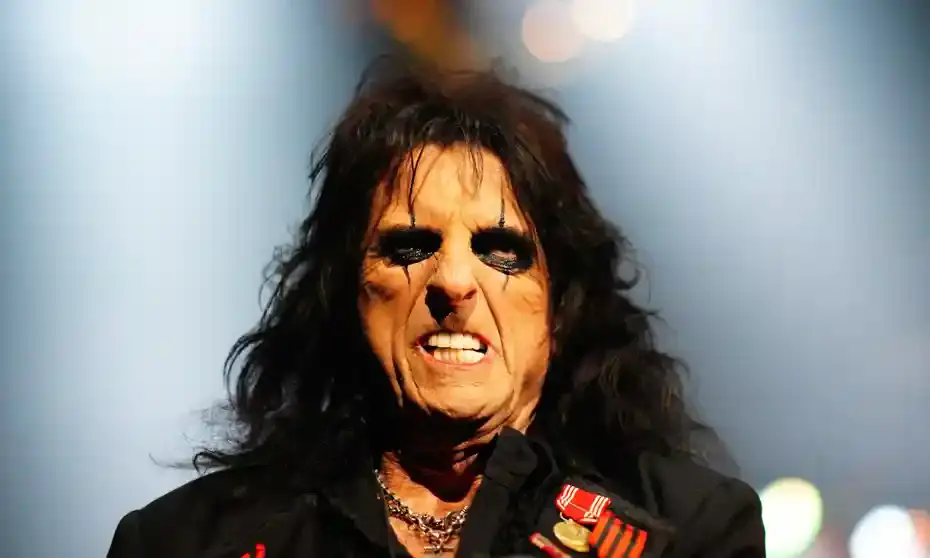
Alice Cooper aka Vince Furnier, claims he ‘should have’ written both Nirvana’s ‘Smells Like Teen Spirit’ and Aerosmith’s ‘Dude Looks Like A Lady’
Were that not self-confident enough, he doubled down on the sentiment by saying there “are some songs that are just so good, you sit there and you go, ‘I could never write that,’ but those were two that I really should have written.”
Fair play for backing yourself, Vince.
While we’re on the subject of Nirvana, Nevermind producer and Garbage man Butch Vig, has cited The Verve’s ‘Bittersweet Symphony’ as the song he most wishes he’d written.
“I love it for its majesty – and the lyrics that Richard Ashcroft wrote. It sounds kind of timeless,” he told Rolling Stone; a sentiment which, while no doubt genuine, is a little ironic considering that the late Allen Klein (infamously hard-nosed former manager of The Rolling Stones) made sure Ashcroft doesn’t see much in the way of remuneration for his songwriting effort for a long, long time.
That was thanks to the recording’s use of that very distinctive string motif – lifted from a previously obscure instrumental take of The Stones’ ‘The Last Time’, produced by Andrew Oldham in 1968. The rights, however, were handed back to Ashcroft in 2019 at the behest of Mick Jagger, Keith Richards, and the band’s current manager, Joyce Smith.

Mick Jagger ‘returned’ the rights to Richard Ashcroft and The Verve’s song Bittersweet Symphony in 2019
Got to keep rolling
Let’s finish this off with a choice that covers many of the touch-points we’ve visited so far: David Gilmour’s (Pink Floyd) pick of ‘Waterloo Sunset’ during a 2003 Desert Island Discs. Not only is it fun to think of members of super art-rock 60s Floyd incongruously chilling out to the ultra-mod pop stylings of The Kinks, it perhaps hints at an ambition to be more mainstream. Gilmour also told Uncut that the song inspired his writing for 1970s Atom Heart Mother, specifically the song ‘Fat Old Sun’.
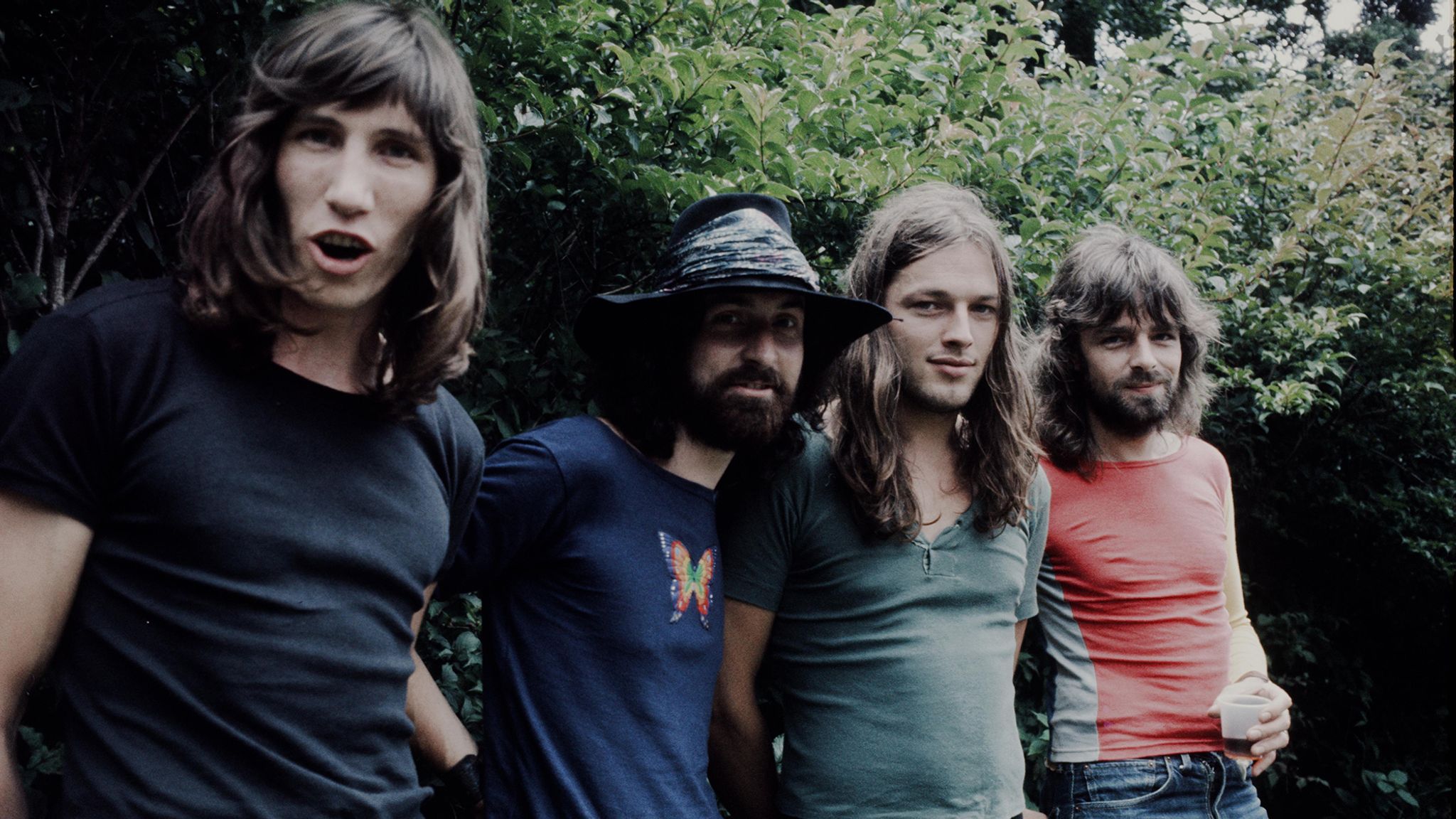
David Gilmour (second from right), Pink Floyd singer and songwriter, wishes he’d written Waterloo Sunset by The Kinks, a song he also included in his 2003 Desert Island Discs appearance
“For me,” Gilmour is quoted as saying on stage at the Royal Albert Hall, “the perfect pop song is ‘Waterloo Sunset’ by the Kinks. I would have loved to have written that.”
Amen, Dave.



